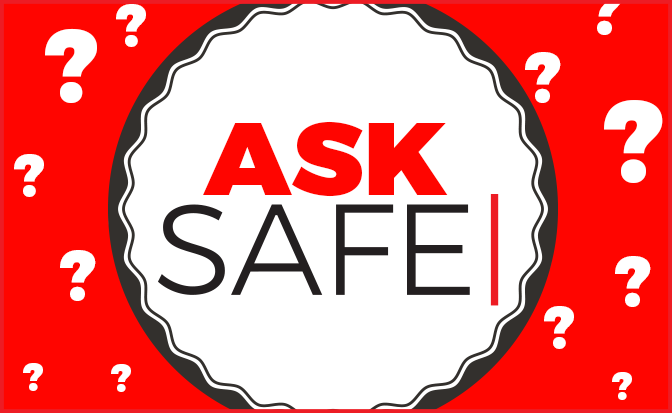Ask SAFE: What do I do during the holidays if I see the person who abused me?
Written by SAFE
Earlier in my life, I was abused. During the holidays, the person who abused me is invited to family gatherings. I’d feel bad if I didn’t go to dinner with the rest of my family and I don’t want to let this person ruin my holiday. What should I do?
First and foremost, any apprehension, fear, stress, or hurt you’re experiencing is completely normal – you have a right to feel whatever you’re feeling. The abuse you experienced is not OK and is absolutely not your fault.
And you’re far from alone. Like so many people who struggle with someone who abused them being part of their life, you have options as holiday gatherings approach.
You have a say
In all matters, you have agency over yourself. If you are not comfortable spending the holidays around the person who abused you, you have the right not to go.
It’s OK to say you don’t feel well. It sounds like the thought of spending time around the person who abused you makes you feel unwell, so it’s not like you’re being dishonest. Or you can simply say you’re not going. Depending on the family dynamic, that could be enough.
If you haven’t opened up to a trusted family member or friend about the abuse, it may be time. A lot of people find healing by talking with family or friends about the violence they experienced, especially when those talks are facilitated by a therapist.
And if you haven’t told anyone, that’s OK, too. People have all sorts of reasons for keeping the details of abuse secret – for fear of not being believed, of retaliation, of causing a rift in the family, and so many other reasons.
When you start thinking about things like that, it sometimes feels like you did something wrong. You didn’t. Please know that whatever abuse you experienced is not your fault and you absolutely did not deserve it.
All that being said, it’s OK if you’re not ready to talk about it – frankly, it’s OK if you’re never ready. Sure, some time has passed, but trauma has a funny way of sticking around. Do what’s right for you.
And if you choose not to go to family dinner, take some time to practice a little self care. Watch your favorite movie. Hit the gym. Read a book. Take a bubble bath. Or maybe you miss dinner with the folks because you’re throwing a Friendsgiving dinner! Spending time with friends can do a lot to raise your spirits.
If you decide to go
Establish your boundaries.
It’s a family gathering, so you may have certain social obligations. Recognize how much contact you can manage with your abuser. Maybe you’re OK with saying “hello” and “goodbye,” but that’s it. Maybe even that’s too much. Or maybe you’re fine with exchanging a few words, but physical contact is off limits. Wherever you draw the line, stick to it.
If it looks like your boundaries are about to be broken, you have the power to remove yourself from the situation. Walk away. You don’t owe anyone an explanation.
But if it feels like you need an excuse, again, it’s hardly a lie to say you’re not feeling well.
Set a specific time frame for how long you will stay. Maybe you stay for dinner, but won’t stick around for the dessert and drinking after. And remember you can always leave earlier if it starts to feel unsafe.
Take breaks. Go outside. Go to the bathroom. Take a moment to connect with someone supportive through a text message or a phone call.
Identify an ally within the family – someone who can be part of most of your social interactions or is good at redirection. If possible, talk with this ally beforehand to establish a sort of “social smoke bomb.” This could be as simple as saying “Oh hey, could you come with me to grab a drink from the kitchen?”
If you have chosen not to disclose the abuse with your ally, you could say something along the lines of, “I’m trying to limit interactions with someone. Would you mind helping me?”
Be sure to spend as much time as you can with the people who make you feel happy and loved. That’s the point of family gatherings, right? And the good vibes you get from your loved ones may be what it takes to help you avoid some of the toxic feelings that your abuser stirs up.
Ask for help
Even if you’ve already opened up to your family or friends, you may find healing by talking to a counselor or advocate.
The free, 24/7 SAFEline is operated by trained advocates who can offer support in a safe space, free from judgement.
The SAFEline is available by phone at 512.267.SAFE (7233), by text at 737.888.7233, or by online chat at safeaustin.org/chat. They can help you process whatever you’re feeling and can help set up counseling or group sessions if you’d like.
Don’t be afraid to contact us before the your holiday gathering. And if you go through with family dinner, we’ll be here to talk with you about whatever feelings came up.
For this holiday and every day coming up, please do what’s right for you.